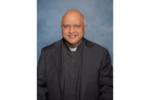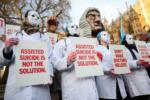Zingers, previously unused
When I began columnizing, in the Paleolithic Period when a correcting IBM Selectric II typewriter seemed the ne plus ultra of technology-for-scribes, I collected quotable quotes in a plastic box, for possible insertion into columns in the manner of my friend, Dr. George F. Will. Rooting around the yellowing scraps in that box recently, I came across a gaggle of zingers that went unused, but which it seems a shame not to share with readers and posterity. So, for a little summer levity, here we go:
On the perils of succumbing to political correctness: "There is no evidence that the fate of the last of the Gadarene swine was noticeably preferable to that of the first" (Charles Stuart, Christ Church don, deploring his Oxford colleagues' argument that the college couldn't be "left behind" in changing traditional practices).
Getting the conversation started properly: "How doth truth prosper in thy parts?" (an old Quaker greeting).
The evils of French revolutionary weights and measures: "If God had wanted us to use the metric system, he'd have given us 10 apostles" (an angry worker, struggling with metric tools).
Rarely an argument lost: "He can persuade most people of most things, and above all he can persuade himself of almost anything" (W.E. Forster on William Gladstone).
The limits of openness: "An open mind, like an open mouth, should close on something" (G.K. Chesterton [of course]).
Beyond having a career: "But yield who will to their separation/My object in living is to unite/My avocation and my vocation/As my two eyes make one in sight./Only where love and need are one,/And work is play for mortal stakes,/Is the deed ever really done/For Heaven and the future's sake" (Robert Frost, "Two Tramps in Mud Time").
Telling look-a-likes apart: "(Anthony) Eden is the sheep striving to look like a man, (Harold) Macmillan the man affecting to look like a sheep" (SHAEF officer explaining to General Eisenhower's staffers how to distinguish between two future British prime ministers).
Staying sharp: "The important thing is not to stop questioning. Curiosity has its own reason for existence. One cannot help but be in awe when one contemplates the mysteries of eternity, of life, of the marvelous structure of reality. It is enough if one tries to comprehend a little of this mystery each day. Never lose a holy curiosity" (Albert Einstein).
Social ineptness: "Bore. A person who talks when you wish him to listen" (Ambrose Bierce, "The Devil's Dictionary").
Good government: "When Dr. Johnson declared that patriotism is the last refuge of a scoundrel, he underestimated the potential of reform" (Roscoe Conkling, resigning from the U.S. Senate after President Garfield rejected Conkling's machine nominee for Collector of Customs of the Port of New York).
On the right: "The function of conservatives is to extract the truth in each succeeding heresy" (Lord Hailsham).
The education of the judiciary: "What are you going to do about crime?" New York mayoral candidate Ed Koch was asked at a senior citizens' center in the Bronx during his first campaign to run the Big Apple. "Ladies and gentlemen," Koch responded, "did you know that a judge was mugged last week? He called a press conference and said, 'This mugging will in no way affect my judgment in matters of this kind.'" At which point an elderly lady stood up in the back of the room and shouted, "Then mug him again!"
A culture without reality contact: "We have now sunk to a depth at which the restatement of the obvious is the first duty of intelligent men" (George Orwell).
The earthen vessel of the Church: "No merely human institution conducted with such knavish imbecility would have lasted a fortnight" (Hillaire Belloc on Catholicism).
The right stuff: "How would you like to sit on top of five million parts, each of which was made by the lowest bidder?" (John Young, on flying the first space shuttle).
Our task: "The Gospel must be preached by men. The angels have other duties" (plaque found in an old church).
George Weigel is Distinguished Senior Fellow of the Ethics and Public Policy Center in Washington, D.C.



















